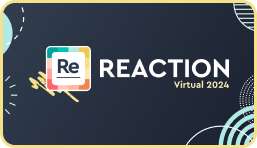As organizations identify new ways to drive success and support the growth of their employees, Learning and Development (L&D) is undergoing a profound transformation. At the heart of this evolution lies a new focus on continuous learning, which fosters ongoing skill enhancement and knowledge acquisition throughout the workforce and can help combat the ongoing skills gap. In this blog, we’ll dive into how and why L&D programs are evolving as well as ways to overcome common obstacles to successful L&D programs that truly support a culture of continuous learning.
The Evolution of Learning and Development
Traditionally, L&D has been viewed as a structured, one-size-fits-all approach to training. However, with the advent of technology and changing workforce demographics, there has been a monumental shift towards personalized, continuous learning models. Globalization, digitalization, and the rise of remote work have further propelled this transformation — pushing companies to design agile and adaptable learning strategies to meet the demands of a rapidly evolving landscape and workforce.
The Skills Gap Impact on L&D
One of the most pressing challenges faced by organizations today is the widening skills gap. As job roles change and technologies advance at an unprecedented pace, there is a growing disparity between the skills possessed by the workforce and those demanded by employers. This gap underscores the critical need for upskilling and reskilling initiatives to ensure that employees remain competitive and relevant in the ever-changing job market. And it’s often falling to the organizations themselves to develop upskilling programs to stay competitive and develop their own workforce.

Why It’s Important to Focus on the Future of L&D
The future of L&D is not merely a matter of organizational strategy; it is intricately linked to business performance, employee retention, and recruiting efforts. Companies that prioritize continuous learning are better positioned to adapt to market dynamics, foster employee engagement and loyalty, and attract top talent in a competitive landscape.
Navigating Challenges in the Future of Learning & Development
While the benefits of embracing innovative L&D strategies are evident, organizations often face common obstacles such as budget constraints, time limitations, and resistance to change. Overcoming these challenges requires a multifaceted approach that involves collaboration, prioritization, and fostering a culture of continuous learning.
Here are 5 ways companies can overcome these common challenges:
1. Develop a College-to-Career Connection
Establishing partnerships with educational institutions can ensure graduates are equipped with the skills needed for the workforce of tomorrow.
2. Encourage Company Collaboration
Aligning corporate strategy, talent agenda, and learning agenda will cultivate a culture of continuous learning that drives organizational growth.
3. Prioritize Learning
Integrating learning into the flow of work and designing targeted training programs to address skill gaps will ensure your workforce has the skills and competencies they need to succeed.
4. Foster a Culture of Continuous Learning
Empowering employees to take ownership of their development through mentorship programs, peer-to-peer learning, and knowledge sharing platforms helps them stay accountable for their own growth and long-term success.
5. Use Technology to Enhance Learning Experiences
Leveraging emerging technologies such as AI, VR, AR, and adaptive learning platforms will deliver more engaging and effective learning experiences.

Partnering with GoReact for Long-Term L&D Success
The future of Learning and Development hinges on the ability of organizations to embrace change, adapt to evolving trends, and foster a culture of continuous learning. By prioritizing collaboration, innovation, and employee development, companies can position themselves for long-term success in an increasingly competitive landscape.
Adopting virtual learning tools and partnering with video + feedback solutions like GoReact can enhance your ability to close the skills gap, improve your L&D programs, and ensure continuous learning — so you can prepare and support learners and the overall organization effectively.







